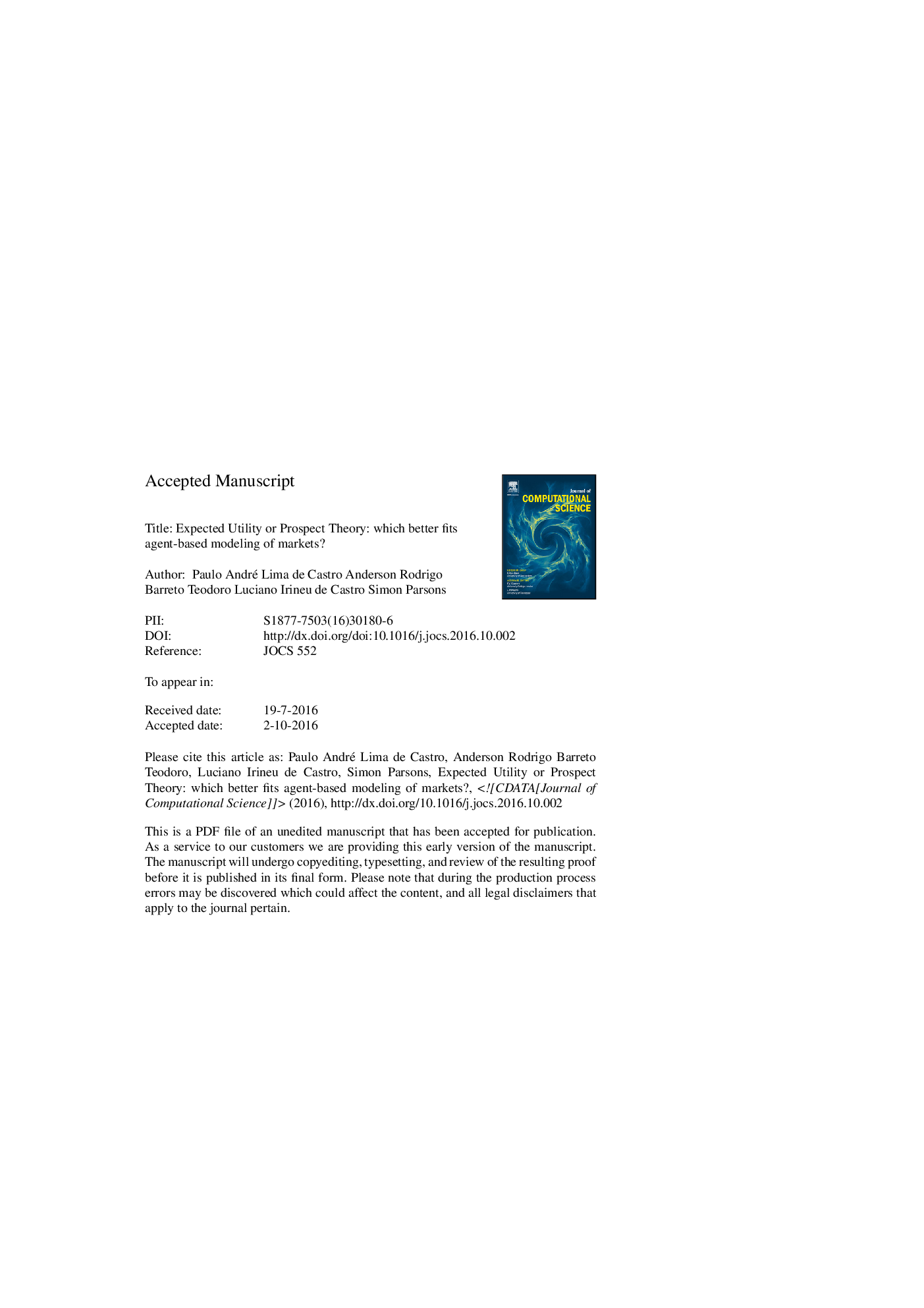| کد مقاله | کد نشریه | سال انتشار | مقاله انگلیسی | نسخه تمام متن |
|---|---|---|---|---|
| 10997978 | 1364327 | 2016 | 19 صفحه PDF | دانلود رایگان |
عنوان انگلیسی مقاله ISI
Expected utility or prospect theory: Which better fits agent-based modeling of markets?
ترجمه فارسی عنوان
ابزار مورد انتظار یا نظریه چشم انداز: کدامیک بهتر است مدل سازی مبتنی بر عامل را از بازارهای مناسب؟
دانلود مقاله + سفارش ترجمه
دانلود مقاله ISI انگلیسی
رایگان برای ایرانیان
کلمات کلیدی
سیستم های چندگانه، مدل سازی مبتنی بر عامل،
موضوعات مرتبط
مهندسی و علوم پایه
مهندسی کامپیوتر
نظریه محاسباتی و ریاضیات
چکیده انگلیسی
Agent-based simulations may be a way to model human society behavior in decisions under risk. However, it is well known in economics that Expected Utility Theory (EUT) is flawed as a descriptive model. In fact, there are some models based on prospect theory (PT), that try to provide a better description. If people behave according to PT in finance environments, it is arguable that PT based agents may be a better choice for such environments. We investigate this idea in a specific risky environment, a financial market. We propose an architecture for PT-based agents. Due to some limitations of the original PT, we use an extension of PT called Smooth Prospect Theory (SPT). We simulate artificial markets with PT and traditional (TRA) agents using historical data of many different assets over a period of 20 years. The results showed that SPT-based agents provided behavior that is closer to real market data than TRA agents, and that the improvement when using SPT rather than TRA agents is statistically significant. It supports the idea that PT based agents may be a better pick to model the behaviour of agents in risky environments.
ناشر
Database: Elsevier - ScienceDirect (ساینس دایرکت)
Journal: Journal of Computational Science - Volume 17, Part 1, November 2016, Pages 97-102
Journal: Journal of Computational Science - Volume 17, Part 1, November 2016, Pages 97-102
نویسندگان
Paulo André Lima de Castro, Anderson Rodrigo Barreto Teodoro, Luciano Irineu de Castro, Simon Parsons,
